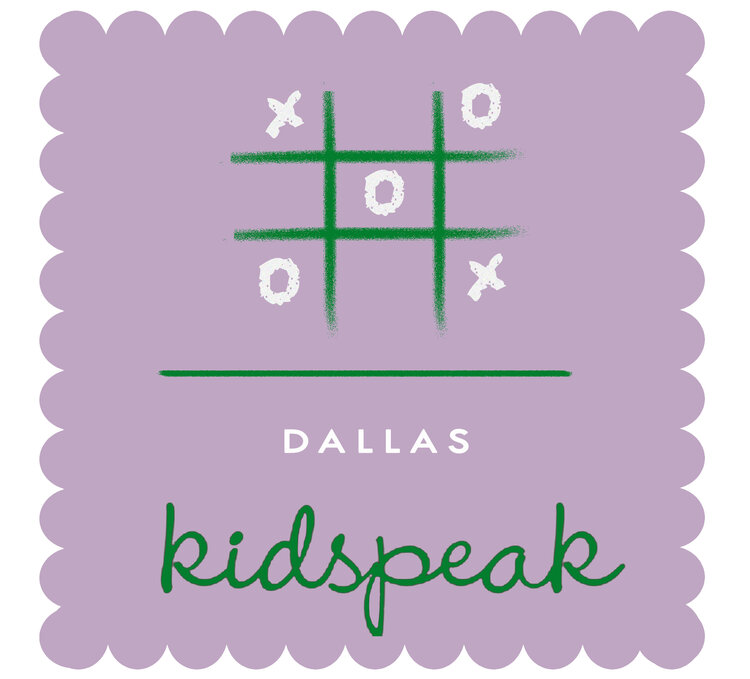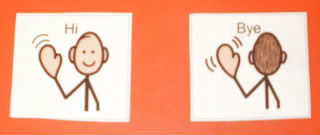Greetings are one of the first social routines that children learn (“bye bye!”); however, this is often one of the most difficult skills for children with language disorders to learn.
Greeting may be difficult for our kids for many reasons including:
1) Increased social expectations: There is the social expectation of saying “hi/bye” and the social expectation of eye contact
2) Unfamiliar people: Often when people say hello out in the community it is with someone your child does not know, making it even more difficult for them to respond to greetings.
Here are a few steps you can follow to help your child initiate and respond to greetings: “hi” and “bye”.
Read MoreToday we want to share our 2nd installment of our 10 Fun Ways to Beat The Heat -– Speech and Language Activities” is making watermelon tambourines!!
If you missed our last one please check out our Sun Catchers Blog at https://www.kidspeakdallas.com/kidspeakblog/beat-the-texas-heat-sun-catchers
Within this activity you will be addressing so many fun skills and the kids won’t even know that they are “working”! Fine motor skills and finger and hand strengthening can be addressed with cutting, gluing, hole punching, tearing paper, opening and closing baggies, opening and closing glue, stapling and more! Academic skills such as simple math and sequencing can easily be implemented. Don’t forget all the wonderful language that is naturally incorporated into art and art is also a fantastic way to focus on social skills with an adult, with a sibling or with a friend on a play date! Sharing, taking turns, watching and observing others, commenting and engaging in conversations are just a few fun social skills that can be implemented into art projects.
Read MoreAs a parent with a child with special needs you most likely spend the majority of your time in the car driving from one appointment to the next as well as within many different waiting rooms. With all that time spent in “transition” it is sometimes difficult to make sure that your child is emotionally regulated, entertained, having fun, learning, transitioning smoothly, eating properly and more. In addition, you may also have your other kids with you and sometimes it is hard to entertain them while you are waiting for brother or sister to finish.
This week we want to help you create a “Bag of Tricks” that will help your transitions move much smoother. You will need a big bag or plastic box to put everything in. This bag will be your “on the go” bag. You will take it with you everywhere you go: in the car, in the waiting rooms, at soccer practice, etc. We suggest packing this bag every Sunday night (replacing the items every 1-2 weeks so that your kids don’t get bored) and then place it in the car so it’s ready to go for the week!
Read MoreIt’s official…….Summer is here and it is HOT. For the next 8 weeks we want to share with you 4 fun ways to beat the heat while focusing on your speech and language skills!! Each of these activities are focused on staying cool, having fun, working on speech and language, working on social skills and more! In addition, all of these activities are great for therapy, play dates, home and more!
Today’s first “Beat the Heat – Speech and Language Activities” is making sun catchers!!
Read MoreWe all use one. Yours may be on your iPhone, computer, tablet, or you may even use old-fashioned pen and paper…..it’s your schedule, your lists, your to-dos and more. What are you doing today? What things do you have to pick up from the store? What did you not get done yesterday? We all do it differently, but we all somehow have a schedule of our day. It is because of this form of organization that we know what will happen and we know what to expect. Now imagine going through one day or even one hour without this. I personally would be lost. This is how your child may feel. Using a visual schedule everyday all day long allows your child to plan, organize, and predict what will happen next. By allowing them to see what is coming next it will decrease their anxiety and; therefore, decrease transition difficulties.
Read More




